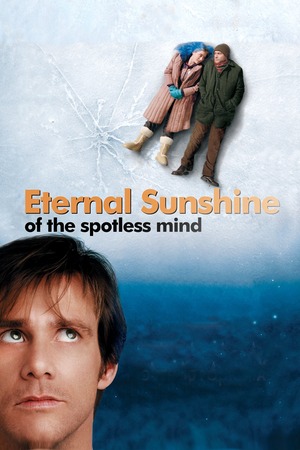
Directed by: Michel Gondry
Starring: Jim Carrey, Kate Winslet, Elijah Wood, Mark Ruffalo, Kirsten Dunst, Tom Wilkinson
🧠 Memory as Identity
Eternal Sunshine of the Spotless Mind poses a central question: If we remove painful memories, do we remove essential parts of ourselves? Joel and Clementine undergo a memory-erasure procedure, hoping to forget their failed relationship. However, as the process unfolds, it becomes clear that their memories—painful, chaotic, beautiful—form the very structure of their identities.
In the film’s dreamlike sequences, Joel resists the erasure, trying to hide Clementine in other unrelated memories. This symbolic resistance underscores the idea that memory is not easily compartmentalized. The act of remembering, even when painful, is necessary for emotional growth. The film invites us to consider: Is forgetting worth the cost of emotional numbness?
💔 The Cycle of Love and Loss
Joel and Clementine's relationship is shown in reverse—from bitter end to blissful beginning—reflecting how time and memory distort romantic experiences. The film suggests that all relationships are doomed to face difficulty, but their value lies not in their permanence, but in the experience itself. Love, in Eternal Sunshine, is both transcendent and temporary—marked by moments of connection amid inevitable decay.
The use of nonlinear narrative challenges our understanding of beginnings and endings. Even as Joel tries to cling to fading memories, he’s ultimately reliving what is gone. It reveals the tragic poetry of love: it always ends, but that does not diminish its worth.
🌀 Mindscape and the Subconscious
The entire film plays out largely within Joel's mind, making the setting a symbolic space. Michel Gondry’s surreal visuals—melting faces, disappearing scenery, flickering light—mirror the instability of Joel's emotional state. These elements evoke a Freudian journey through the subconscious, as Joel’s mind attempts to protect, hide, and confront emotional truths.
As the mindscape collapses around Joel, we are reminded of the fragility of memory and the chaos beneath conscious thought. This landscape becomes a psychological battleground where love, loss, and repression vie for dominance.
🌈 Clementine as the Manic Pixie Dream Girl Subversion
Clementine initially fits the “manic pixie dream girl” archetype—vibrant, impulsive, and designed to shake Joel from his dull routine. But Eternal Sunshine deconstructs this trope by giving Clementine her own psychological depth and insecurities. Her desire to be “new” by erasing Joel suggests deep personal regret and dissatisfaction. She is not a fantasy, but a flawed, layered individual who resists being reduced to Joel’s idealized version of her.
Joel’s journey is not just about loving Clementine, but about learning to see her as a full person—imperfect, wounded, and real. This shift reflects a larger theme: true love emerges when we let go of fantasy and embrace the flaws of others.
⏳ The Persistence of Emotion
Even when the memories are gone, an emotional residue remains. Joel and Clementine are drawn to each other again after the procedure, suggesting that emotional bonds defy rationality and even technological intervention. The heart remembers what the mind tries to erase.
The final moments, where they listen to their pre-erasure tapes, choosing to try again despite knowing how it ended, underline the film’s existential stance: to love is to risk pain. Yet that risk is what makes life meaningful. They acknowledge their past failures, not as reasons to avoid each other, but as evidence of something real and worth revisiting.
🎯 Final Thoughts
Eternal Sunshine of the Spotless Mind is a masterclass in emotional storytelling. It intertwines science fiction, surrealism, and romantic drama to create a narrative that challenges our understanding of memory, love, and identity. Its symbolism—erasers, snow, fading rooms—is potent and haunting, reminding us that forgetting does not equal healing.
Ultimately, the film argues for the beauty of imperfection and the importance of holding onto the pain that shapes us. Like memories themselves, Eternal Sunshine lingers long after the screen fades to black.